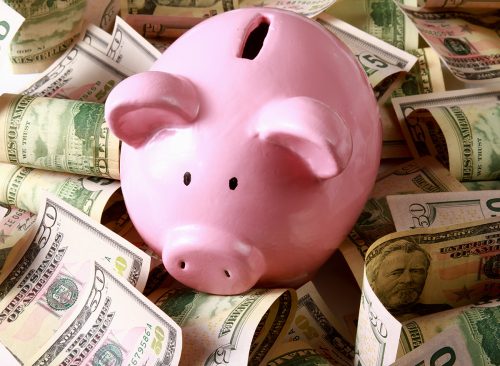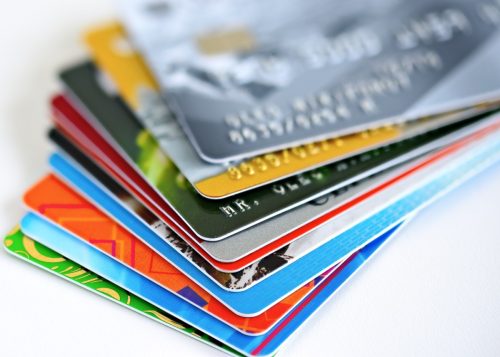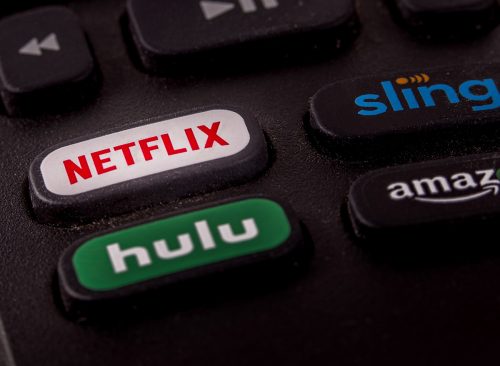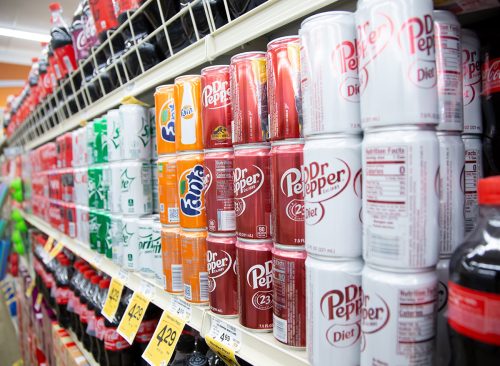
It may be painful, but for the sake of your financial health, it’s a good idea: Take a close look at receipts and bank statements to see what forgotten charges and overlooked price increases are unnecessarily draining your wallet. Dropping the avoidable rip-offs—and shopping around for lower-cost or higher-benefit alternatives for necessary services—can save you serious money. These are 20 rip-offs that are costing you money every month.

How often do you change checking accounts? For many of us, it’s set-’em-and-forget-’em. Unfortunately, you may be overlooking monthly maintenance, ATM, and overdraft fees—and cheating yourself out of interest to boot. Several online banks offer checking accounts without fees, and some even pay interest on your balance. Consult a site like Bankrate or NerdWallet to find the best options for you.

If your savings are parked in a basic savings account with major banks like Chase or Bank of America, you may earn as little as 0.01% APY in interest. Opening a high-yield savings account with SoFi or LendingClub can earn you 4.5% APY as of August 2023, CNBC reports. These rates vary according to the prime interest rate, but high-yield accounts earn significantly more than basic accounts. If you’re not putting your savings in a high-yield account, you’re passing up free money every month.

Last month, personal finance expert Dave Ramsey called these mortgages more of a “ticket to foreclosure” than a ticket to homeownership. ARMs start at low interest rates—making them appealing to cash-strapped applicants—but can rise sharply in connection with the prime rate, a situation millions of stressed homeowners find themselves in now. Experts say a fixed-rate mortgage is almost always a wiser choice.

Credit card interest is another monthly fee that is easy to overlook. Even if you’ve found a leading credit card with a low APY, store cards like those offered by Amazon, Target, and many major chain stores can charge you up to 29% monthly interest on any balance you carry. Pay them off in full every month or cut them up, experts advise.

Food and liquor delivery is convenient—and a ripoff. When you order through delivery apps like Grubhub and Drizly, you’re paying service fees, bag fees, and often tax on those extra fees, plus a tip. All those surcharges might add 30% or more to your bill. Placing orders for pickup instead can really be worth your time.

Your favorite TV shows—which once may have been accessible in one cable package and bill—are likely now spread across a half-dozen entertainment libraries, each with its own subscription. Those monthly charges can really mount up. When you notice you’re not using a streaming subscription, cancel it. Rejoining is easy when a service adds something you decide you can’t miss.

These fashion and personal-care subscriptions are also easy to sign up for and forget. Chances are, they contain a whole bunch of stuff you never use.

If it’s not on a car, is an extended warranty really worth it? Experts say the answer is often no. Retailers often encourage you to sign up for an extended warranty on electronics and appliances, but much of the time, the cost of the warranty is just about equal to the cost of a potential repair.

If you prefer purified water, you’ll save serious money by purchasing a home filter system or filtering pitcher instead of continuing to spend money on pallets of plastic bottles.

This expense, like many others, doesn’t necessarily become a better deal the longer you keep it. To ensure you’ve got the best price and coverage, do periodic research online.

The price of homeowner’s insurance has risen 20% in one year to an average of $1,400 for the typical $250,000 home.

Internet service providers are fond of offering these bundled packages, which combine internet and TV service with home phone or cellular service and often carry hefty taxes and surcharges. Often, that means paying for services you don’t use or could get more cheaply if you pulled them apart and subscribed separately.

Some credit cards come with steep annual fees. For example, to carry an American Express Gold or Platinum card, you’ll pay a $250 or $695 annual fee respectively. That can break down to a hefty bill each month. Are you getting enough benefits to justify the expense?

Like credit cards, these memberships can come with exorbitant annual fees but minimal benefits you might not be using.

“Printer ink is a scam,” the Washington Post declared last month, reporting that Americans waste $10 billion a year on ink. Printer inks that cost consumers more than Dom Perignon champagne actually cost the manufacturers less than $2 to produce. Monthly ink subscriptions can be a waste of money if you print less than what they cover. Aftermarket and generic inks can work just fine, the news outlet found.

With its surcharges upon surcharges that drastically mark up the ticket prices of concerts and sporting events, it’s no wonder that Ticketmaster has drawn the ire of everyone from Taylor Swift to members of Congress.

Your gym membership might be due for some serious dollar-cost analysis. How often do you really go, and does it justify what you’re paying for the privilege monthly? And could you achieve the same results with some inexpensive equipment—and a plethora of free online workouts—at home?

As per one experienced testimonial on myrecipes.com: “As a long-time restaurant employee, I can promise you the biggest rip-off is the sodas and iced tea. $3 or more, depending on location, for something that costs them pennies.”

“The only thing I could consider a “rip-off” would be beer and wine,” said one restaurant employee on myrecipes.com. “We just buy those and mark it up 300%.”
RELATED: 30 Area Codes to Watch for in Latest Phone Scam

Its ever-rising price is draining your wallet while its carbon emissions are destroying the planet. What’s not to love? As automakers develop more affordable electric cars—Volkswagen just announced a 2025 model that will retail for about $27,000—it’s getting harder to justify being ripped off at the pump.














